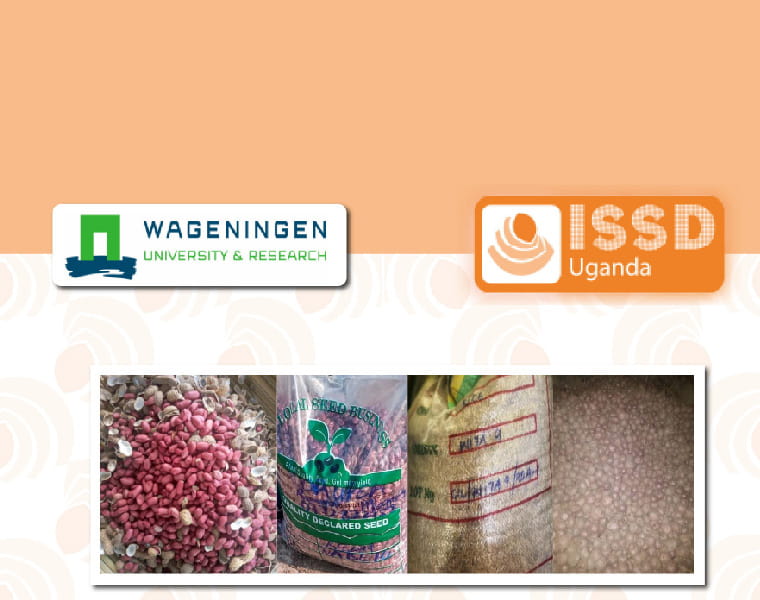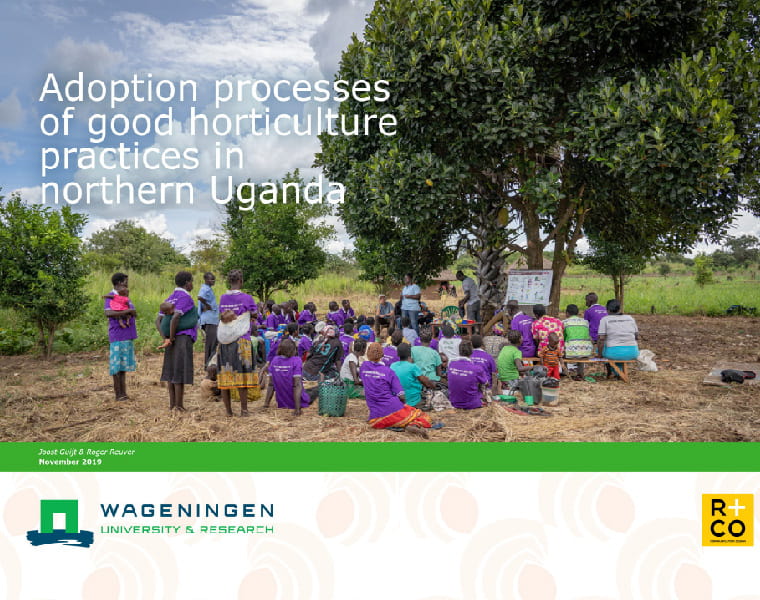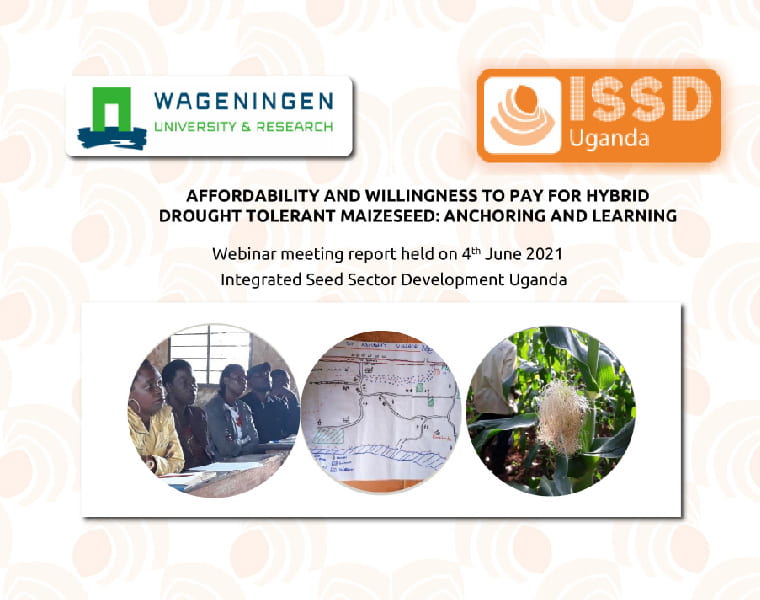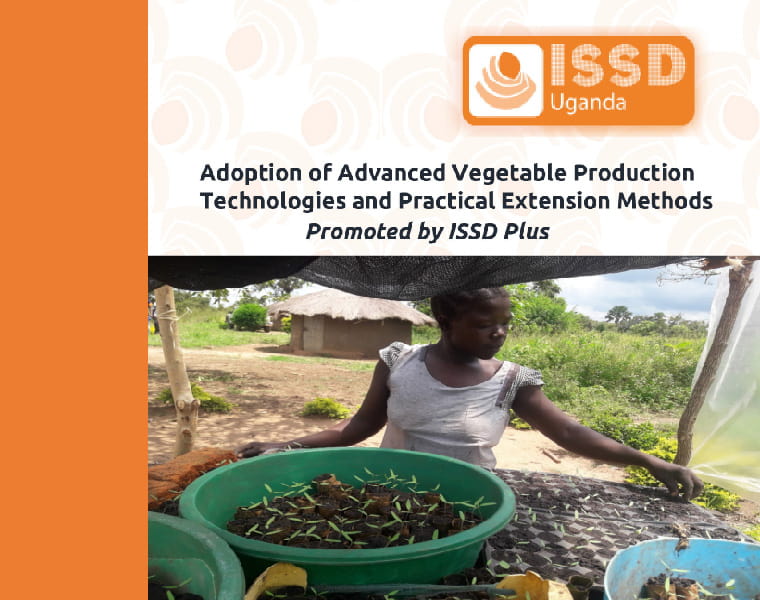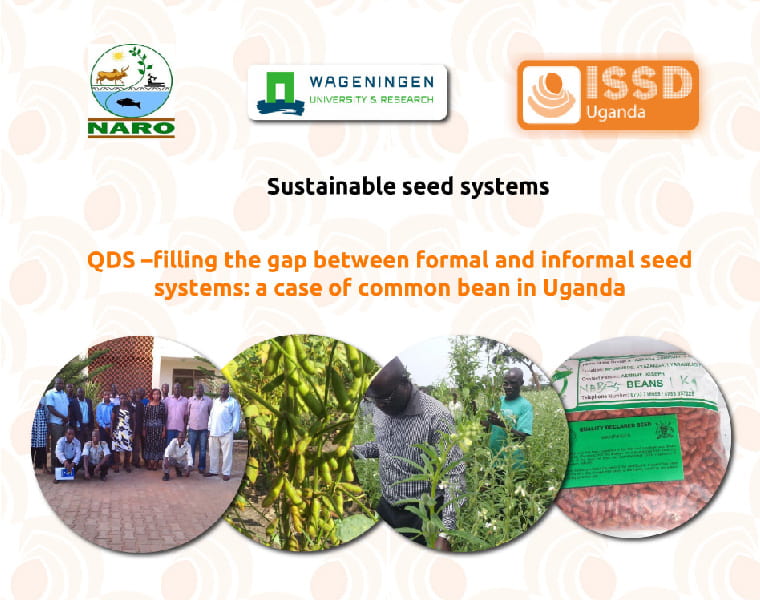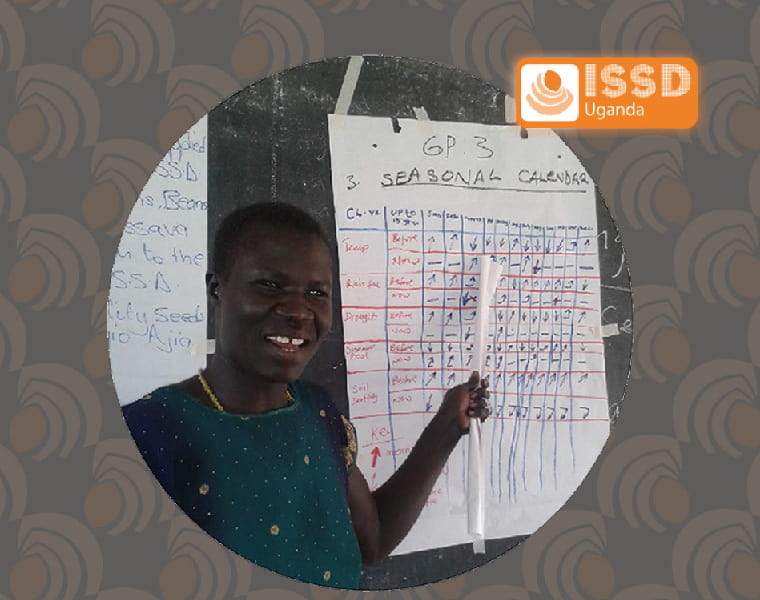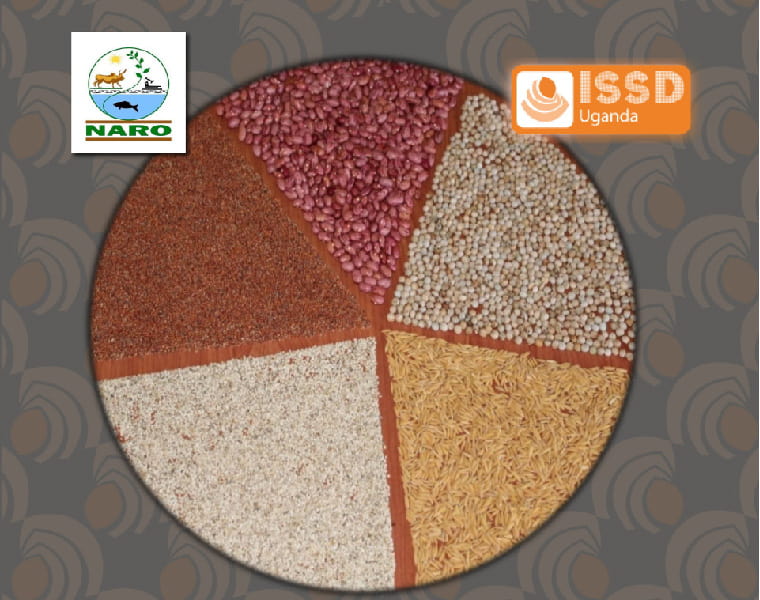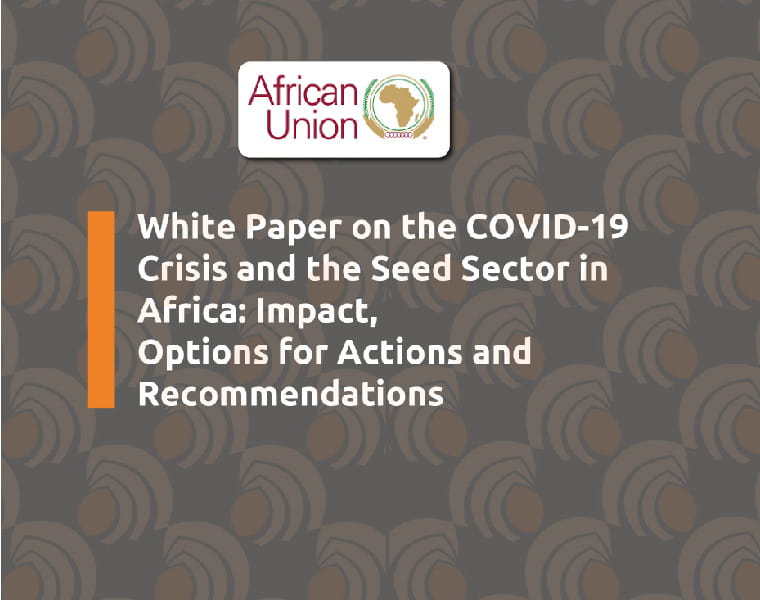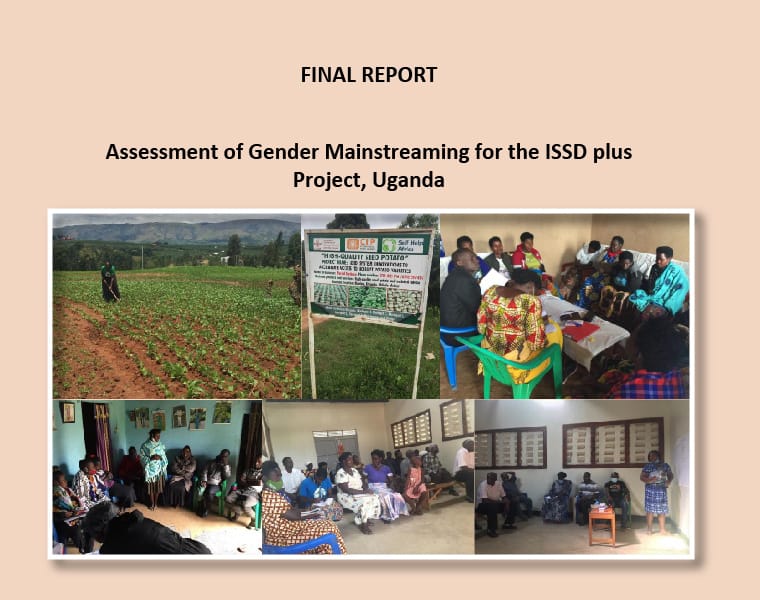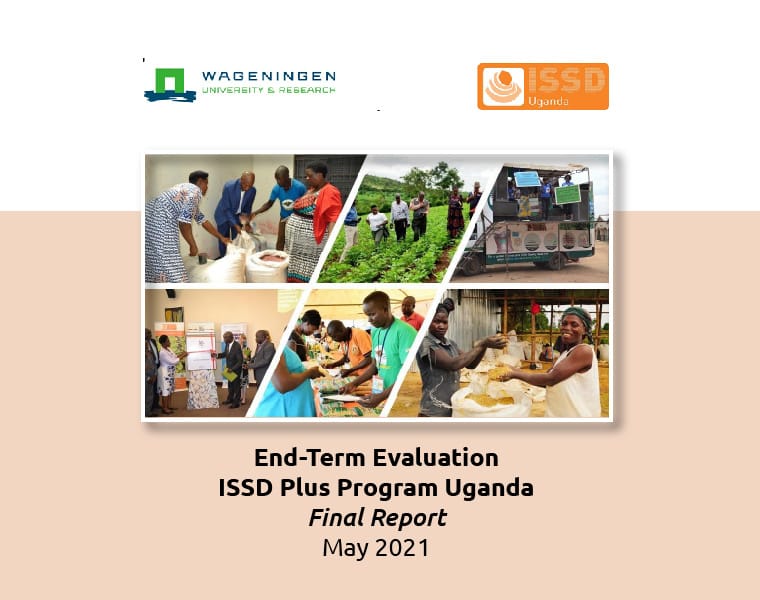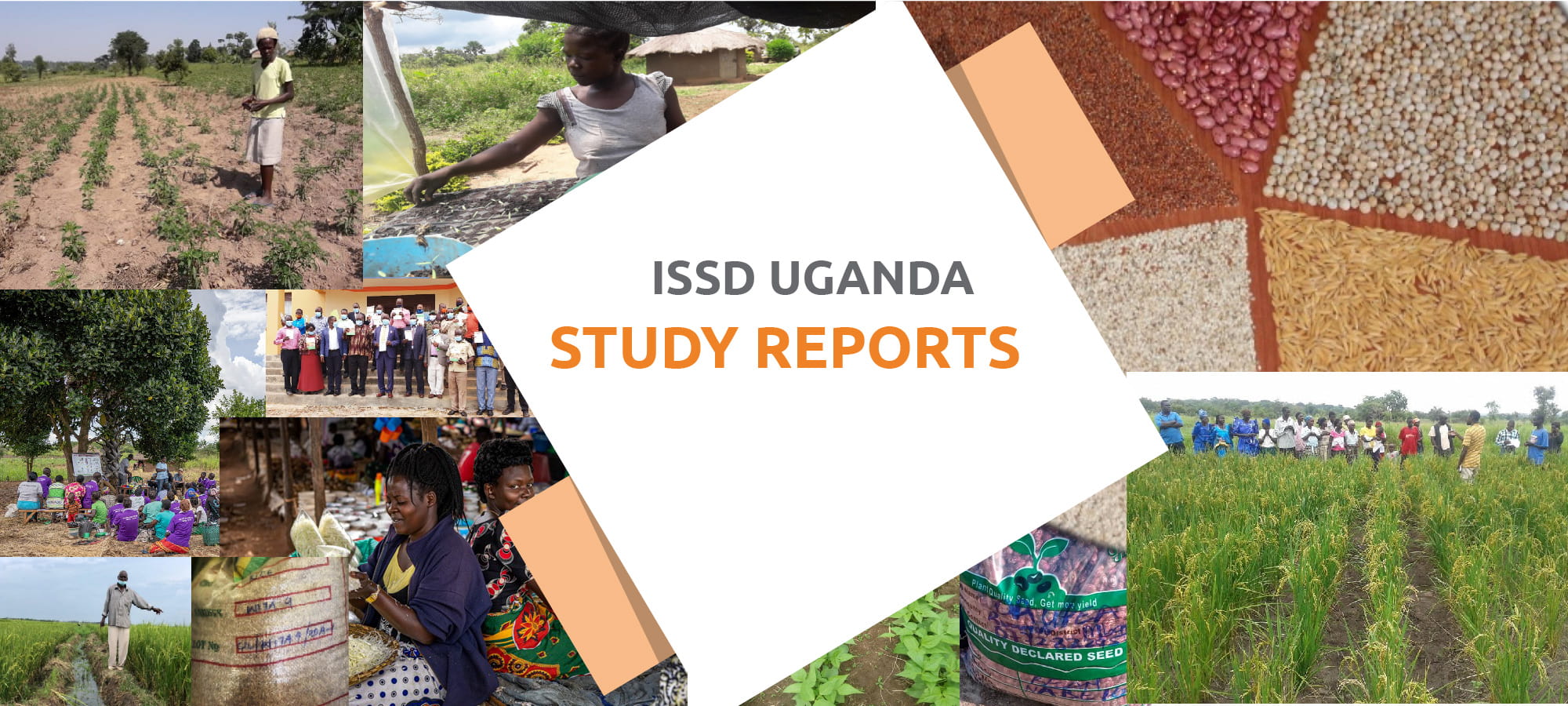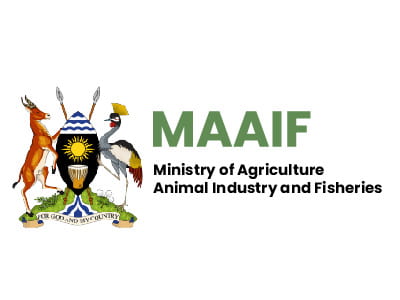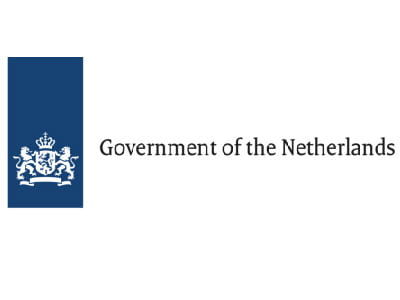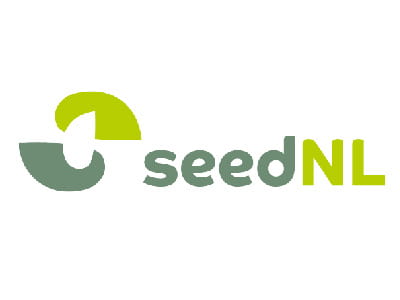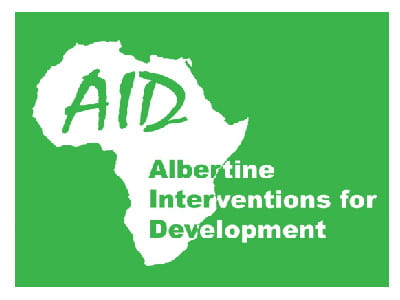This report describes the outcomes of subregional meetings to disseminate the National Seed
Policy (NSP) and regulatory framework, online surveys to assess the impact of Covid-19
pandemic on access to quality seed, and performance of the functions, services and activities
of the seed sector in Uganda conducted from July-September 2020. The specific objectives
were to appraise the District Agricultural Officers (DAOs) and farmers’
organisations/associations representatives of the NSP and regulatory frameworks; assess the
impact of covid-19 pandemic on access to quality seed; assess the level performance of the
seed value chain services and functions; and analyse the limitations of decentralising the
implementation of the NSP. The integrated Seed Sector Development (ISSD) Plus project in
Uganda, supported by the Embassy of the Kingdom of the Netherlands (EKN) funded the
study.
The methodology included a literature review to provide background on the seed sector;
online survey to assess the performance of the functions of the seed sector, the impact of
Covid-19 pandemic on access to quality seed; and a series of sub-regional meetings. The
subregional meetings used a participatory discussion approach focusing on the understanding
of the NSP, related legal and regulatory frameworks; issues and challenges in the
implementation of the NSP; and practical actions to address them. The questionnaires for the
online surveys were guided by the seed sector analysis methodology using scores to guide
the respondents. The survey was coded in Kobo toolbox and collated in a database for
analysis.
The dissemination meetings revealed that by the District Local Government, in particular the
DAOs and farmers representatives had information and knowledge of the NSP and regulatory
frameworks. Key issues and challenges were: poor knowledge and information about new
released varieties, weak linkage between research and extension services, limited supply of
basic seed, multiple un coordinated seed supply chains; prevalence of poor-quality seed (poor
germination and variety mixtures), quality seed perceived as expensive and continued use of
home-saved seed by majority of smallholder farmers.
Government restrictions on mobility and gatherings as a result of lockdown starting from
March 2020 to stop the spread of covid- 19, had a knock-on effect on key services and
activities including: disruptions in variety evaluation and promotion, disruption in production
and supply of basic seed; happening accrues to agricultural inputs due to scarcity and
increased prices, and impeding distribution of seed at selling points.
Overall, the performance of the seed sector functions and services were rated fair but key
areas of variety development and release, Early generation seed production and supply, seed
quality supply and quality assurance, marketing, financing, coordination, utilisation and
prevalence of fake seed on the market require more attention.
To request for this publication write to email: info@issduganda.org
